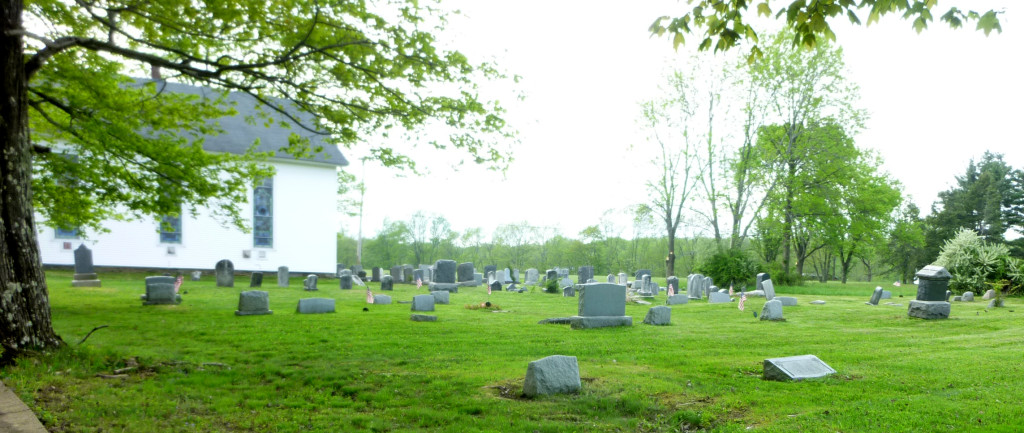While going through my files I came upon an article about the Inn by Hunterdon historian Egbert T. Bush. It tells us much about how popular and important the Inn was, not just to Stockton but also to the surrounding towns.
Hockenbury
Postscript to The Heaths of Locktown
Shortly after publishing last week’s article, the Heaths of Locktown, David Sherman sent me four very interesting documents from his collection of Heath & Sherman memorabilia. They shed new light on the lives of Edward M. Heath and his son Robert, as well as their friend Lester B. Sherman, and his wife Fayetta Reep’s family.
The Railroad That Wasn’t Built
Part one in the series, The Route Not Taken
This article by Egbert T. Bush caught my attention because it is reminiscent of PennEast’s attempt to dig a pipeline across Delaware Township and other parts of Hunterdon and Mercer Counties. The big difference here is that many landowners along the proposed route of this railroad supported it because they expected real benefits, whereas PennEast’s pipeline is likely to do more harm than good.
Wm Crater, Blacksmith of Glen Gardner
In a previous article, I told the story of Martin Kaffitz and his wife Hattie W. Fritts. Kaffitz was employed for many years by William Crater who ran the blacksmith shop in Glen Gardner, Hunterdon County. I learned about the life of Martin Kaffitz from the many entries about him in the Hunterdon Republican newspaper. That paper was equally informative about William Crater, although Crater led a very different sort of life.
A Stockton Inn History
This article is a continuation of the article by Egbert T. Bush titled “When Stockton Was Not So Dry.” (Part One and Part Two.) Today I will enlarge on Mr. Bush’s short history of the Stockton Inn, which is now for sale. It is my hope that by fleshing out this history, a purchaser might be found who will value it as well as the lovely architecture of the place.
Democrats & Union Men, continued
Here are some more of the Delaware Township gentlemen who took sides during the early years of the Civil War—men who joined the Democratic Club of Delaware Township in 1863, and also men living in the same vicinity who supported the Administration.1
1863 Politics in Delaware Township
This article is a follow-up to the Democratic Club of Delaware Township, published last spring.
The previous article described the Club’s principles and resolutions, reflecting the alarm felt by Hunterdon Democrats at the war measures taken by President Lincoln. The article was published in the Hunterdon Historical Newsletter.1 But because of length restrictions, short biographies of the club’s officers had to be postponed to a future newsletter.
Gathering Nuts Was Once An Industry
A Boy Could Make From 30 to 40 cents a Day by Hard Work
Pegg Family Conserved Acres
by Egbert T. Bush, Stockton, N.J.
published by the Hunterdon Co. Democrat, November 21, 1929
This is another in a series of articles by Egbert T. Bush Paying attention to the wonderful trees of old Hunterdon County. A complete list of Bush’s tree articles can be found at the end.
The Locktown Christian Church Cemetery

As a follow-up to my recent article on the history of the Locktown Christian Church, here is a list of the people known to be buried in the cemetery adjacent to the church.
A visit to this interesting cemetery will quickly reveal that there are many graves here that are unmarked. So it is impossible to know who might be the earliest person buried here. The earliest gravestone is for Charity Alley who died in 1843, although Cornelius Williamson Carrell might have died a couple years before that. Oddly enough, Ms. Alley comes first on the list. The last known grave to be added was for Arthur E. Jungblut in 1999.
Old-Time Sawmills Were a Joy to Watch
If the boy has ever lovingly watched the operation of one of the original sawmills, the old man’s memory will often go fondly back to those boyhood days. Whether they were or were not “the good old days” of which we hear so much, makes no difference at all. They were the days in which sawmills along country roads were almost as common as filling stations are today. And how much more interesting they were, and how much sweeter smelling!